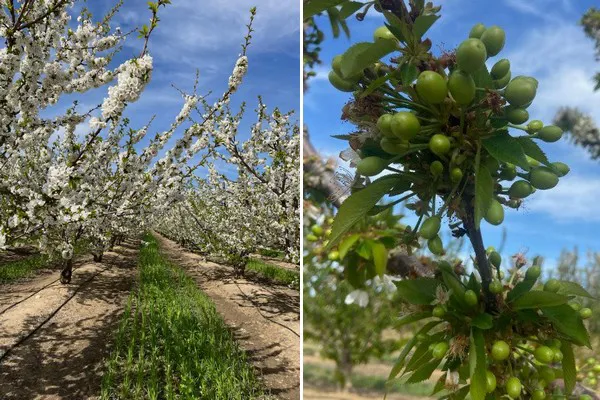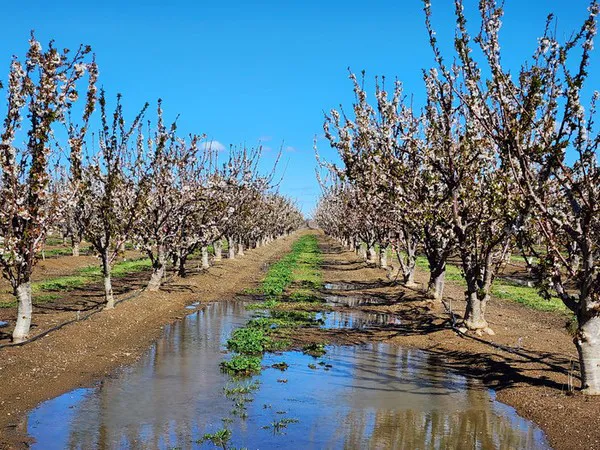No two years are alike in California. The state experienced the driest three-year stretch on record until this last winter season came around. Torrential rain and snow drenched the state in recent weeks, adding to an already wet winter season. Another storm with more rainfall is hitting California this week. “While cherries and rain don’t go together, the rain events so far were early enough to bring a bit of relief,” says Chris Medeiros with Meena Farms. “The amount of rainfall has helped refresh our soils and it has been great for our orchards,” he said. Additionally, California’s water storage projects, which include a network of reservoirs and ground water banks, have been able to build up storage for future use.
However, above-average rainfall and cooler weather are speculated to have an impact on the timing of cherry harvest. Last year, Meena Farms started picking their first cherries on April 15. What about this year? “That’s the big question,” Medeiros said. “I know we will not be as early as last year, but the weather for the next two weeks will be crucial in determining the timeline,” he added. In addition to a later harvest start date, Medeiros is concerned pollination may be affected as well. “We are uncertain if the bees have been successful working during this cooler weather period. If pollination was impacted, it potentially means a lighter crop.” On a positive note, the cherries don’t seem to be damaged by the rain. While Medeiros feels optimistic about what he’s seeing in the early fields, things will unfold in the next couple of weeks.

“It’s a challenging year to assess,” he said. “I can’t recall a winter quite like this. It is continuously cold and wet.” Usually, the transition from the early fields to the mid-season fields is a smooth one for Meena Farms. However, they expect to have a short gap between their early and mid-season blocks.
Overseas customers
Currently, Meena Farms focuses its efforts on export markets for their cherry crop. Last year was a challenging year for exports due to high freight costs and a high value of the US dollar. “The exchange rate made our cherries more expensive for overseas buyers.” In addition, Covid restrictions were still in place in some markets, including China. This really dampened demand. With the hopes of more favorable currency exchange and the easing of Covid restrictions, Medeiros is hopeful to see more export buyers in the market. In general, Southeast Asia, Korea, and Japan are key customers of California cherries.

For more information:
Chris Medeiros
Meena Farms
Tel: (+1) 209-710-5716
www.meenafarms.com
